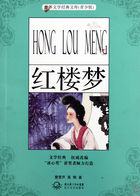* Since these words were written President Felton has died--I, as Ireturned on my way homeward, had the melancholy privilege of being present at his funeral. I feel bound to record here the great kindness with which Mr. Felton assisted me in obtaining such information as I needed respecting the institution over which he presided.
I am not at all aware whether the nature of the manufacturing corporation of Lowell is generally understood by Englishmen. Iconfess that until I made personal acquaintance with the plan, Iwas absolutely ignorant on the subject. I knew that Lowell was a manufacturing town at which cotton is made into calico, and at which calico is printed--as is the case at Manchester; but Iconceived this was done at Lowell, as it is done at Manchester, by individual enterprise--that I or any one else could open a mill at Lowell, and that the manufacturers there were ordinary traders, as they are at other manufacturing towns. But this is by no means the case.
That which most surprises an English visitor on going through the mills at Lowell is the personal appearance of the men and women who work at them. As there are twice as many women as there are men, it is to them that the attention is chiefly called. They are not only better dressed, cleaner, and better mounted in every respect than the girls employed at manufactories in England, but they are so infinitely superior as to make a stranger immediately perceive that some very strong cause must have created the difference. We all know the class of young women whom we generally see serving behind counters in the shops of our larger cities. They are neat, well dressed, careful, especially about their hair, composed in their manner, and sometimes a little supercilious in the propriety of their demeanor. It is exactly the same class of young women that one sees in the factories at Lowell. They are not sallow, nor dirty, nor ragged, nor rough. They have about them no signs of want, or of low culture. Many of us also know the appearance of those girls who work in the factories in England; and I think it will be allowed that a second glance at them is not wanting to show that they are in every respect inferior to the young women who attend our shops. The matter, indeed, requires no argument. Any young woman at a shop would be insulted by being asked whether she had worked at a factory. The difference with regard to the men at Lowell is quite as strong, though not so striking. Working men do not show their status in the world by their outward appearance as readily as women; and, as I have said before, the number of the women greatly exceeded that of the men.
One would of course be disposed to say that the superior condition of the workers must have been occasioned by superior wages; and this, to a certain extent, has been the cause. But the higher payment is not the chief cause. Women's wages, including all that they receive at the Lowell factories, average about 14s. a week, which is, I take it, fully a third more than women can earn in Manchester, or did earn before the loss of the American cotton began to tell upon them. But if wages at Manchester were raised to the Lowell standard, the Manchester women would not be clothed, fed, cared for, and educated like the Lowell women. The fact is, that the workmen and the workwomen at Lowell are not exposed to the chances of an open labor market. They are taken in, as it were, to a philanthropical manufacturing college, and then looked after and regulated more as girls and lads at a great seminary, than as hands by whose industry profit is to be made out of capital. This is all very nice and pretty at Lowell, but I am afraid it could not be done at Manchester.
There are at present twelve different manufactories at Lowell, each of which has what is called a separate corporation. The Merrimack Manufacturing Company was incorporated in 1822, and thus Lowell was commenced. The Lowell Machine-shop was incorporated in 1845, and since that no new establishment has been added. In 1821, a certain Boston manufacturing company, which had mills at Waltham, near Boston, was attracted by the water-power of the River Merrimack, on which the present town of Lowell is situated. A canal called the Pawtucket Canal had been made for purposes of navigation from one reach of the river to another, with the object of avoiding the Pawtucket Falls; and this canal, with the adjacent water-power of the river, was purchased for the Boston company. The place was then called Lowell, after one of the partners in that company.
It must be understood that water-power alone is used for preparing the cotton and working the spindles and looms of the cotton mills.
Steam is applied in the two establishments in which the cottons are printed, for the purposes of printing, but I think nowhere else.
When the mills are at full work, about two and a half million yards of cotton goods are made every week, and nearly a million pounds of cotton are consumed per week, (i e. 842,000 lbs.,) but the consumption of coal is only 30,000 tons in the year. This will give some idea of the value of the water-power. The Pawtucket Canal was, as I say, bought, and Lowell was commenced. The town was incorporated in 1826, and the railway between it and Boston was opened in 1835, under the superintendence of Mr. Jackson, the gentleman by whom the purchase of the canal had in the first instance been made. Lowell now contains about 40,000 inhabitants.
The following extract is taken from the hand-book to Lowell: "Mr.















